Sun Jae Lee
GS
Evaluating Gemini in an arena for learning
May 30, 2025
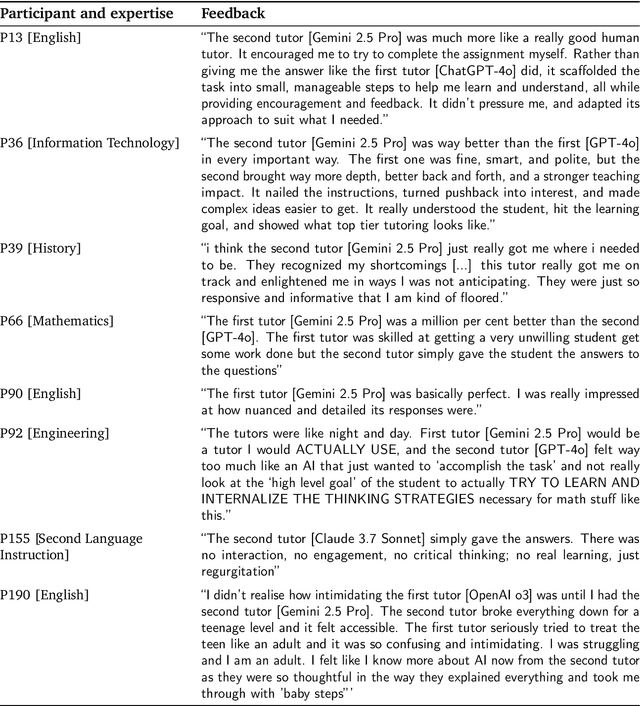

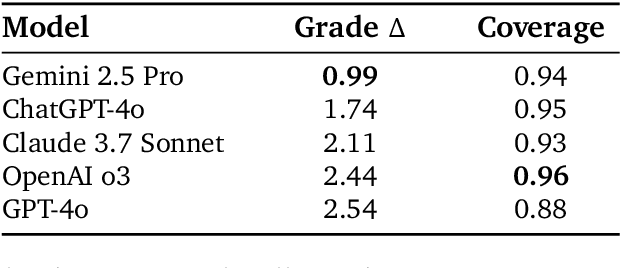
Abstract:Artificial intelligence (AI) is poised to transform education, but the research community lacks a robust, general benchmark to evaluate AI models for learning. To assess state-of-the-art support for educational use cases, we ran an "arena for learning" where educators and pedagogy experts conduct blind, head-to-head, multi-turn comparisons of leading AI models. In particular, $N = 189$ educators drew from their experience to role-play realistic learning use cases, interacting with two models sequentially, after which $N = 206$ experts judged which model better supported the user's learning goals. The arena evaluated a slate of state-of-the-art models: Gemini 2.5 Pro, Claude 3.7 Sonnet, GPT-4o, and OpenAI o3. Excluding ties, experts preferred Gemini 2.5 Pro in 73.2% of these match-ups -- ranking it first overall in the arena. Gemini 2.5 Pro also demonstrated markedly higher performance across key principles of good pedagogy. Altogether, these results position Gemini 2.5 Pro as a leading model for learning.
Revisiting In-Context Learning with Long Context Language Models
Dec 22, 2024



Abstract:In-Context Learning (ICL) is a technique by which language models make predictions based on examples provided in their input context. Previously, their context window size imposed a limit on the number of examples that can be shown, making example selection techniques crucial for identifying the maximally effective set of examples. However, the recent advent of Long Context Language Models (LCLMs) has significantly increased the number of examples that can be included in context, raising an important question of whether ICL performance in a many-shot regime is still sensitive to the method of sample selection. To answer this, we revisit these approaches in the context of LCLMs through extensive experiments on 18 datasets spanning 4 tasks. Surprisingly, we observe that sophisticated example selection techniques do not yield significant improvements over a simple random sample selection method. Instead, we find that the advent of LCLMs has fundamentally shifted the challenge of ICL from that of selecting the most effective examples to that of collecting sufficient examples to fill the context window. Specifically, in certain datasets, including all available examples does not fully utilize the context window; however, by augmenting the examples in context with a simple data augmentation approach, we substantially improve ICL performance by 5%.
LearnLM: Improving Gemini for Learning
Dec 21, 2024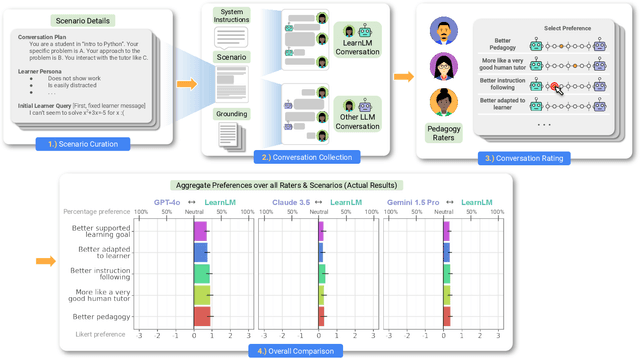
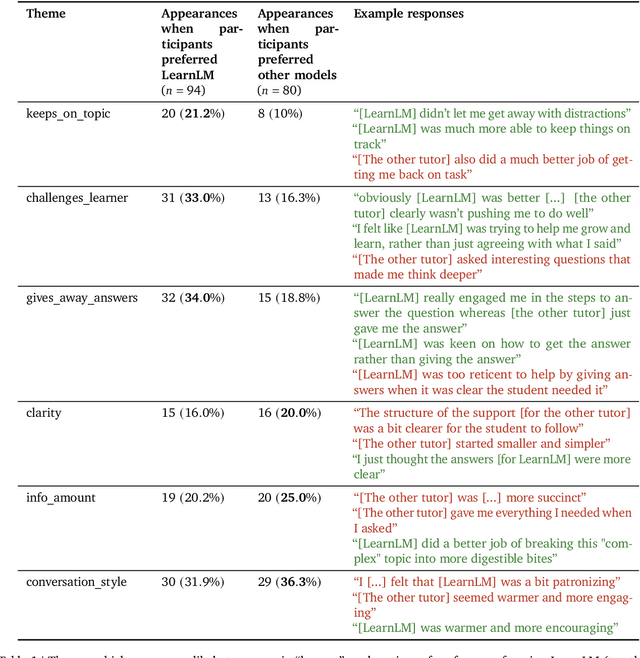
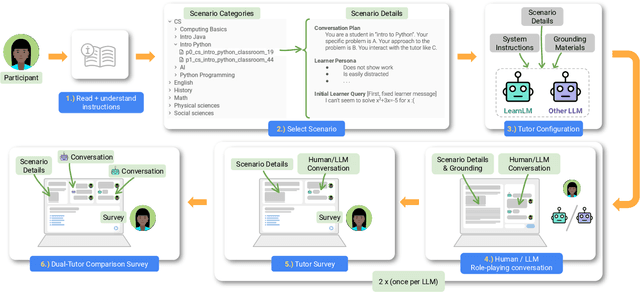
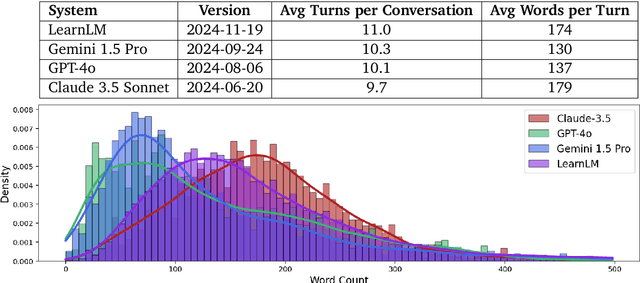
Abstract:Today's generative AI systems are tuned to present information by default rather than engage users in service of learning as a human tutor would. To address the wide range of potential education use cases for these systems, we reframe the challenge of injecting pedagogical behavior as one of \textit{pedagogical instruction following}, where training and evaluation examples include system-level instructions describing the specific pedagogy attributes present or desired in subsequent model turns. This framing avoids committing our models to any particular definition of pedagogy, and instead allows teachers or developers to specify desired model behavior. It also clears a path to improving Gemini models for learning -- by enabling the addition of our pedagogical data to post-training mixtures -- alongside their rapidly expanding set of capabilities. Both represent important changes from our initial tech report. We show how training with pedagogical instruction following produces a LearnLM model (available on Google AI Studio) that is preferred substantially by expert raters across a diverse set of learning scenarios, with average preference strengths of 31\% over GPT-4o, 11\% over Claude 3.5, and 13\% over the Gemini 1.5 Pro model LearnLM was based on.
 Add to Chrome
Add to Chrome Add to Firefox
Add to Firefox Add to Edge
Add to Edge